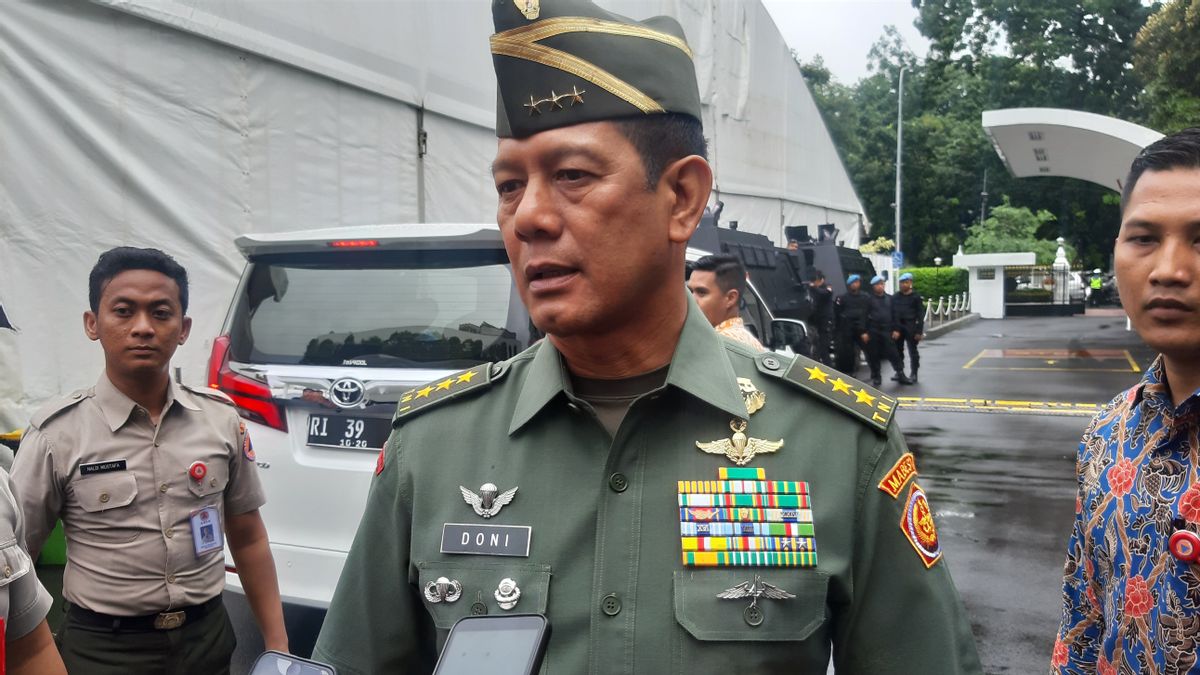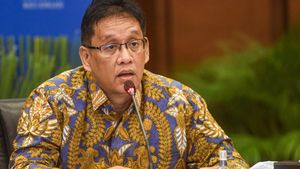JAKARTA - The 12 hours of rain that occurred in DKI Jakarta and its surroundings on New Year's Eve brought floods in several areas of Jabodetabek. The flood, which is like a New Year's gift, resulted in 60 deaths and 173,050 people forced to flee.
This incident occurred at the beginning of the rainy season, although it is estimated that the peak season for Jakarta and its surrounding areas will occur in February. So, how can we prevent flooding like this from happening again?
Head of the National Disaster Management Agency (BNPB) Lt. Gen. Doni Munardo said that disasters - especially - floods cannot be faced by one institution alone. According to him, there needs to be togetherness and serious steps in alleviating the problem of flooding as well as a program that is continuously carried out not only when the flood has occurred. So it's not just a ceremony.
"Taking care of the environment should be a routine program on an ongoing basis. It cannot be just a ceremony on a certain day, but it must be all the time," Doni told reporters in Jakarta, Thursday, January 23.
Doni also said that on October 31, 2019 they had sent circular letters to various agencies and regional heads to anticipate disasters and strengthen the early warning system. In addition to the circular, BNPB has also held meetings with the local government, TNI and Polri.
He considered, there have been several regions that have succeeded in strengthening the early warning system. "In the regions there are those who are successful," said Doni, without explaining the areas he meant were successful in implementing the system.
Doni understands that flooding is a natural phenomenon that may be difficult to prevent. But he believes, the regional government should be able to anticipate material losses to the community and casualties by making a number of preparations. For example, he said, as was done by the North Konawe Regional Government.
"Why was it successful that there were no victims (during flash floods in North Konawe)? Because the regional apparatus went to the field with the community to invite residents on the riverbanks to be evacuated. When the flash flood occurred, their houses were washed away, none of the people died. , "he explained.
Reflecting on the incident, Doni emphasized the success or failure of the development and strengthening of the early warning system depending on the respective regional heads who should be more serious about working for their people.
"All officials are expected to be more concerned, especially in dealing with rainy seasons like this. If you need less sleep, stay alert," he said.
Apart from the issue of the early warning system, Doni also said good communication from upstream to downstream should be possible. The goal is that all information can be quickly distributed.
There is also a good idea, said Doni, regional officials in the upstream and downstream areas to create WhatsApp Group. The goal is that all information and data is really easily conveyed. "Form WhatsApp groups to get correct data, not to be influenced by hoaxes, fake news so that people also get accurate information," he said.
Remind that drainage and rivers are litter-free
In addition to reminding the early warning system to be strengthened and regional heads must be alert, Doni also talked about drainage and rivers. According to him, drainage and rivers are important things that must be considered in order to be free from rubbish during the rainy season. The goal, so that water can flow quickly without the need to stagnate longer and cause flooding.
"There must be seriousness to clean drainage, especially culverts, small rivers, creeks. No garbage," he said.
He did not deny that when the rainy season had not entered, many areas did not pay attention to the existing rivers and had an impact on the amount of garbage there. In fact, this river is useful for flowing water into the sea.
"Now, when the river is full of garbage, the water will automatically overflow," said Doni, adding that each region should have a program to take care of the environment.
It is known that some time ago, BMKG predicted that the peak of the 2020 rainy season would occur in February-March. Meanwhile, the dry season is predicted to occur in April-October 2020.
"The peak of the rainy season occurs from February to March, and the dry season is April. So, this February-March, we hope to optimize the infiltration of water that falls due to abundant rain," said Head of BMKG Dwikorita Karnawati in December 2017.
He also reminded that water infiltration should be provided during the rainy season. The goal is to anticipate the long dry season that will occur in April.
"Immediately prepare rainwater infiltrations, especially for flat land, not on sloping land. Because if it is infiltrated on sloping land it will actually encourage landslides," he concluded.
The English, Chinese, Japanese, Arabic, and French versions are automatically generated by the AI. So there may still be inaccuracies in translating, please always see Indonesian as our main language. (system supported by DigitalSiber.id)










